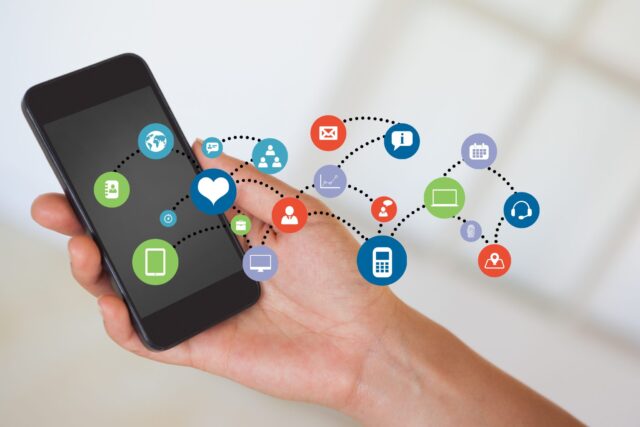Agra, renowned for its rich cultural heritage and iconic landmarks, is also witnessing a significant evolution in its retail landscape. As consumer preferences shift towards digital experiences, mobile app development has emerged as a pivotal force driving retail growth in the city. Here’s an in-depth look at the role of mobile app development in enhancing Agra’s retail sector.

Table of Contents
Toggle1. Enhancing Customer Experience
In today’s competitive retail environment, providing an exceptional customer experience is paramount. Mobile apps enable retailers in Agra to offer a seamless shopping experience that caters to the needs and preferences of their customers.
Key Benefits:
- User-Friendly Interfaces: Well-designed apps allow customers to browse products, make purchases, and navigate easily, ensuring a smooth shopping journey.
- Personalization: Apps can gather user data to offer personalized recommendations and promotions, enhancing customer satisfaction.
2. Facilitating Online Shopping
The rise of e-commerce has transformed consumer buying habits. Mobile apps provide a platform for retailers in Agra to tap into the online shopping trend, offering convenience to customers.
E-Commerce Advantages:
- 24/7 Availability: Customers can shop anytime, anywhere, without the constraints of store hours.
- Easy Payment Integration: Mobile apps can support various payment methods, making transactions quick and secure.
3. Promoting Local Products
Agra is home to a diverse range of local products, from handicrafts to traditional sweets. Mobile apps can serve as a platform for promoting and selling these unique offerings.
Local Product Promotion:
- Showcasing Artisans: Retailers can highlight local artisans and their products, fostering a sense of community and supporting local economies.
- Cultural Storytelling: Apps can provide stories behind products, enhancing their appeal and encouraging consumers to support local businesses.
4. Streamlining Inventory Management
Mobile apps can help retailers manage their inventory more effectively, ensuring they meet customer demand without overstocking.
Inventory Solutions:
- Real-Time Tracking: Retailers can monitor stock levels in real time, allowing for timely reordering and minimizing stockouts.
- Data Analytics: By analyzing sales data, retailers can forecast demand and optimize inventory management strategies.
5. Building Customer Loyalty
Customer loyalty is crucial for long-term success in retail. Mobile apps can facilitate loyalty programs that reward repeat customers and encourage brand loyalty.
Loyalty Programs:
- Points and Rewards: Implementing a points system where customers earn rewards for purchases can enhance engagement.
- Exclusive Offers: Providing app-exclusive deals and discounts can incentivize users to download and use the app regularly.
6. Utilizing Location-Based Services
Leveraging GPS technology, mobile apps can offer location-based services that enhance the shopping experience for customers.
Location-Based Features:
- Store Locators: Help users find the nearest retail locations based on their GPS data.
- Geotargeted Promotions: Send notifications about special offers or events when customers are near a store, driving foot traffic.
7. Enhancing Marketing Strategies
Mobile apps can serve as powerful marketing tools, enabling retailers to reach their target audience effectively.
Marketing Features:
- Push Notifications: Send targeted notifications about sales, new products, or events to keep customers engaged.
- Social Media Integration: Encourage users to share their experiences on social media, increasing brand visibility and attracting new customers.
8. Gathering Customer Insights
Mobile apps provide valuable data that retailers can use to understand customer behavior and preferences better.
Data Utilization:
- User Analytics: Track user interactions within the app to identify trends and preferences, helping businesses tailor their offerings.
- Feedback Mechanisms: Implementing in-app feedback forms allows retailers to gather insights directly from customers, informing product development and service improvements.
9. Supporting Omnichannel Strategies
As retail continues to evolve, adopting an omnichannel approach is vital. Mobile apps can serve as a bridge between online and offline shopping experiences.
Omnichannel Benefits:
- Seamless Integration: Allow customers to browse online and pick up in-store or vice versa, creating a cohesive shopping experience.
- Unified Customer Profiles: Maintain customer data across all platforms, ensuring personalized experiences regardless of how customers interact with the brand.
Conclusion
Mobile app development plays a crucial role in driving retail growth in Agra, providing businesses with the tools to enhance customer experiences, streamline operations, and promote local products. As the retail landscape continues to evolve, embracing mobile technology will be essential for Agra’s retailers to stay competitive and meet the changing demands of consumers. By leveraging the benefits of mobile apps, Agra’s retail sector can thrive in this digital age, ultimately contributing to the city’s economic growth and cultural richness.


No responses yet